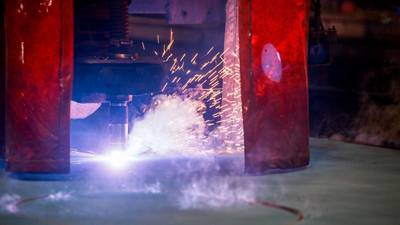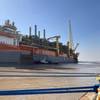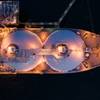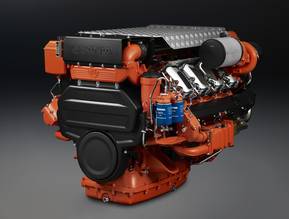Philly Shipyard Begins Building New Aloha Class Vessels for Matson
Philly Shipyard on Monday held a steel-cutting ceremony to signal the start of construction on the first of three new Aloha Class liquefied natural gas (LNG)-fueled containerships to be built for U.S. ocean carrier Matson.
Matson placed the $1 billion three-ship order with Philly Shipyard in 2022 following the deliveries of Aloha-class vessels Daniel K. Inouye and Kamina Hila from the same yard in 2018 and 2019 respectively. The shipyard also delivered four containerships to Matson between 2003 and 2006.
“Today we celebrate not only the beginning of production, but also the return of Matson to Philly Shipyard for our third project together,” said Steinar Nerbovik, Philly Shipyard’s president and CEO. “We are thrilled to build these next vessels which are expected to help Matson achieve its 2030 greenhouse gas emissions goal, an initiative well-aligned with our commitment to people and planet.”
The first of the new Aloha Class vessels is expected to be delivered in the fourth quarter of 2026 with subsequent deliveries in 2027.
Measuring 854 feet long, the three new ships will match the length of the two existing Aloha Class vessels, currently the largest Jones Act containerships ever constructed. Designed for Mason's Hawaii and China-Long Beach Express (CLX) services, the 3,600 TEU vessels are capable of carrying a variety of container sizes and operating at speeds in excess of 23 knots. The vessels will operate on either conventional marine fuels or LNG and will incorporate other “green ship technologies” such as a fuel-efficient hull design, environmentally safe double hull fuel tanks, and freshwater ballast systems. While the earlier ships required some modification to operate with LNG, the new ships will be delivered LNG-ready.
“Our existing Aloha Class ships are among the fastest, most efficient vessels in the Matson fleet,” said Matt Cox, Matson’s chairman and CEO. “And like their sisterships, these three new vessels will help Matson achieve its 2030 greenhouse gas emissions reduction goal while also providing additional capacity and speed benefitting our Hawaii service as well as the CLX.”
Matson has set corporate goals to achieve a 40% reduction in Scope 1 greenhouse gas (GHG) fleet emissions by 2030 and net-zero Scope 1 GHG emissions by 2050.













